Are you new to WordPress and wondering how to log in? Don’t worry; logging into WordPress is a simple process once you know where to go and what to do. Whether you’re managing your blog, an online store, or a portfolio, accessing the WordPress dashboardIn WordPress, the Dashboard is a central hub for managing a website’s content and settings. It is the first sc… More is the first step to managing your website. In this tutorial, we’ll walk you through the entire process, providing clear and easy-to-follow instructions.
Let’s dive into how to log into WordPress and get you started on your website management journey!
What is the WordPress Login Page?
Before we jump into the login process, let’s quickly explain what the WordPress login pageIn WordPress, a page is a content type that is used to create non-dynamic pages on a website. Pages are typica… More is. It’s the page where you enter your username and password to access the admin dashboardIn WordPress, the Dashboard is a central hub for managing a website’s content and settings. It is the first sc… More of your WordPress website. The dashboard is the control center for managing all aspects of your site, from creating blog postsA post is a type of content in WordPress, a popular open-source content management system used for creating an… More to customizing your themeA WordPress theme is a set of files that determine the design and layout of a website. It controls everything … More and managing plugins.
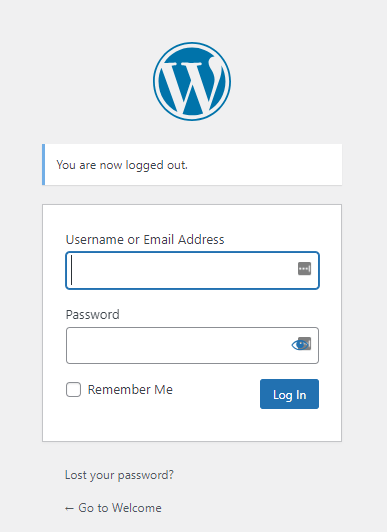
How to Find Your WordPress Login Page
If you’re new to WordPress, one of the first things you need to know is how to locate the WordPress login page. This page is essential because it’s where you’ll enter your username and password to access the admin dashboard of your website. Without this, you won’t be able to manage your posts, themesA WordPress theme is a set of files that determine the design and layout of a website. It controls everything … More, or settings.
So, how exactly do you find the login page? Let’s take a look at the different methods:
1. Using the Default WordPress Login URL
The easiest way to find your WordPress login page is by using the default login URL. Here’s the format:
http://yourdomain.com/wp-login.phpSimply replace yourdomain.com with your website’s actual domain name. For example, if your site’s domain is www.example.com, the login URL will be:
http://www.example.com/wp-login.phpAnother common URL format is:
http://yourdomain.com/wp-adminWhen you enter this URL, it will automatically redirect you to the login page if you’re not already logged in.
2. From the Admin Section of Your Website
If you are already on the homepage of your website, the WordPress login page is usually only a few clicks away. Simply add /wp-admin to the end of your website’s URL, like this:
http://yourdomain.com/wp-admin This will take you directly to the login screen where you can enter your credentials.
3. From the WordPress Dashboard Link
If you’re logged into WordPress on another device, you can simply navigate to the dashboard and look for the login URL. Most WordPress themesA WordPress theme is a set of files that determine the design and layout of a website. It controls everything … More provide a login link in the footer or admin bar. If you’re unsure, just look for any Login or Admin links at the top or bottom of your website’s pagesIn WordPress, a page is a content type that is used to create non-dynamic pages on a website. Pages are typica… More.
4. Via a Custom Login URL (If Set Up)
In some cases, website owners set up a custom login URL for added security. This means the default wp-login.php or wp-admin URLs may no longer work. If this is the case, the login page URL will be something unique. You’ll typically find this information in the welcome email when WordPress was installed or via your site’s security pluginA plugin is a software component that adds specific features and functionality to your WordPress website. Esse… More settings.
If you’re unsure, check with the person who set up your website or review the documentation from your hosting provider.
5. Using a Plugin (If Installed)
Many WordPress websites use security plugins that modify the login page URL for added protection. Plugins like WPS Hide Login allow you to change the URL to something more secure. If this is the case, you’ll need to remember or find out the custom URL for logging in.
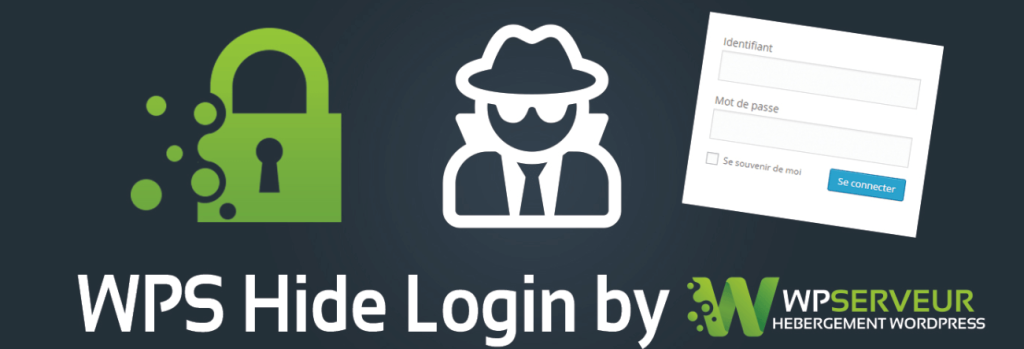
Pro Tip: Bookmark Your Login Page!
Once you find your login page, it’s a good idea to bookmark it in your browser. This will save you time in the future and ensure you always have quick access to your WordPress dashboard.
Knowing how to find your WordPress login page is essential for managing your site. Whether you’re using the default URL, a custom link, or a plugin, you’ll want to make sure you have the correct login page at your fingertips.
And remember, if you ever get stuck or forget your login URL, simply reach out to your hosting provider for support.
How to Log Into WordPress: A Quick Guide
Step 1: Access the WordPress Login Page
The first step is to locate the login page. There are two common ways to find it:
1. Direct URL – If you know the specific login URL for your WordPress site, you can simply enter it in the address bar. The default login URL is:
http://yourdomain.com/wp-login.phpor
http://yourdomain.com/wp-adminReplace yourdomain.com with your website’s actual domain.
2. From the Admin URL of Your Website – If you don’t know the direct login link, simply add `/wp-admin` at the end of your website’s URL (like `www.yoursite.com/wp-admin`). This will automatically redirect you to the login page.
Step 2: Enter Your WordPress Username or Email Address
Once you’ve reached the login page, you’ll be prompted to enter your WordPress username or email address. This is the username or email address you chose when you installed WordPress. If you’re unsure of your username, check your email inbox for the WordPress account creation confirmation, as it typically contains the login credentials.
Tip: If you’re having trouble remembering your username, try the email address you used during the setup. WordPress allows you to log in with either your username or email address.
Step 3: Enter Your Password
Next, enter your password in the designated field. Be sure to double-check for any spelling mistakes or accidental spaces in the password. Passwords are case-sensitive, so make sure the caps lock isn’t on unless your password requires it.
Forgot your password? If you can’t remember your password, no worries! Simply click on the Lost your password? link beneath the login form. WordPress will send a password reset link to your registered email address.
Step 4: Click the “Log In” Button
Once your credentials are entered, click the blue Log In button. If your username and password are correct, you’ll be redirected to the WordPress dashboard.
If you see an error message (e.g., “Incorrect username” or “Wrong password”), double-check your login details and try again. You can also click on the Lost your password? link if necessary.
Step 5: Navigating the WordPress Dashboard
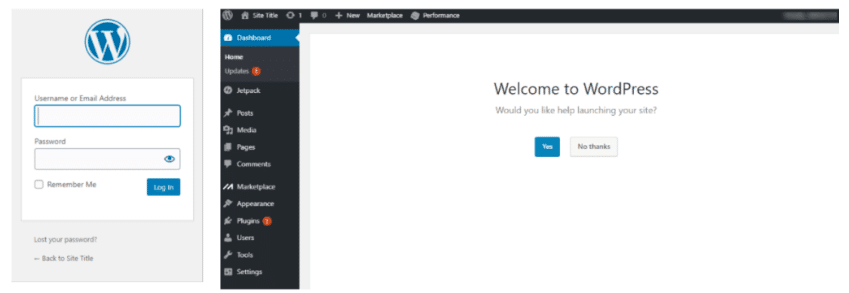
Congratulations! You’ve successfully logged into your WordPress site. Now, you’re at the dashboard. But what can you do here?
The WordPress dashboard is the heart of your website, where you can:
- Create and manage posts and pages
- Install themes and plugins
- Customize the look of your site
- Moderate commentsComments are a feature of WordPress that allow users to engage in discussions about the content of a website. … More
- View your site’s stats and performance
- Manage users and permissions
Pro Tip: Enable Two-Factor Authentication (2FA)
For added security, it’s a good idea to enable two-factor authentication (2FA) on your WordPress login. With 2FA, you’ll need to enter a code sent to your mobile device or email, adding an extra layer of protection against hackers.
You can easily set up 2FA through a plugin like Google Authenticator or Wordfence.

Common Login Issues and How to Fix Them
While logging into WordPress is usually straightforward, there are a few common issues users encounter. Let’s address some of these:
1. Wrong Password
If you can’t remember your password, click on the Lost your password? link to reset it via email.
2. Login Redirects or Infinite Loops
Sometimes, you may experience being redirected back to the login page, even after entering the correct credentials. This is often caused by an issue with cookies or caching. Try the following solutions:
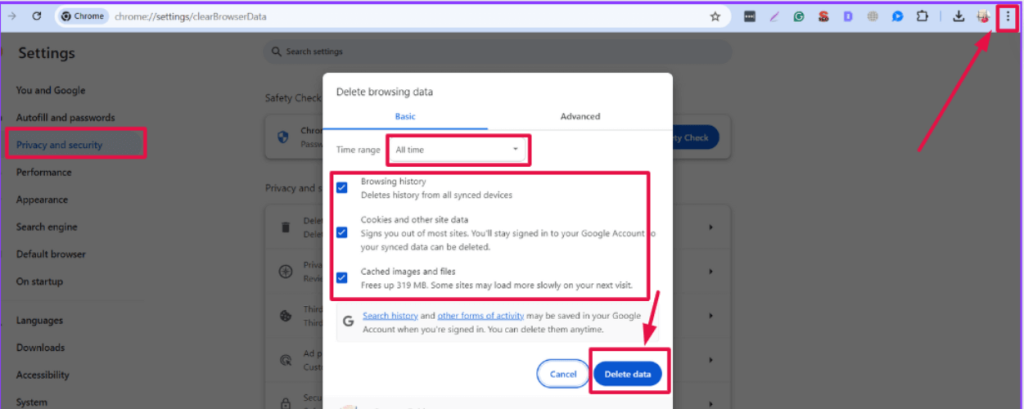
- Clear your browser’s cache and cookies
- Deactivate any security plugins temporarily
- Check if your site’s URL settings in WordPress match the actual URL
3. White Screen of Death (WSOD)
If you can’t access the login page or it loads as a blank white screen, this could be caused by a plugin conflict or a server error. Try deactivating plugins by accessing the site’s file manager (via cPanel or FTP) and renaming the plugins folder.
4. Too Many Failed Login Attempts
If you’ve attempted logging in multiple times with the wrong credentials, WordPress may temporarily block your IP addressAn IP Address (Internet Protocol Address) is a unique numerical identifier assigned to every device connected … More. In this case, you may need to wait a few minutes before trying again. Or, you can contact your hosting provider for assistance.
Logging Into WordPress on Mobile
Did you know you can log into WordPress from your smartphone? Simply open your mobile browser, navigate to your site’s login page, and follow the same process as on desktop. Alternatively, you can download the official WordPress mobile app, which lets you manage your site on the go.
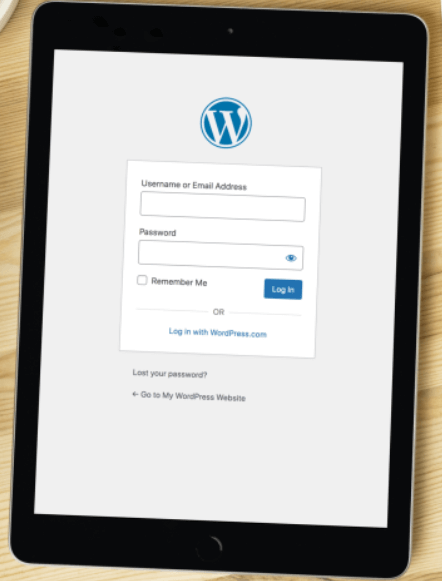
Master How to Log Into WordPress with Confidence
Logging into WordPress is a crucial step for managing your website. By following these simple steps, you’ll be able to access your site’s dashboard and begin creating and editing content. Whether you’re running a blog, an online store, or a portfolio, the WordPress login page is your gateway to all the tools you need to succeed.
If you’ve encountered any problems or have further questions, don’t hesitate to reach out to us or leave a comment below. We’re here to help!
Remember, always keep your WordPress login credentials safe and secure. Enable 2FA if possible, and stay on top of your website’s security to keep your data safe.
If you’re looking for fast WordPress hosting and done-for-you updates, check out our hosting packages and learn how to log into WordPress with ease by clicking the button below:

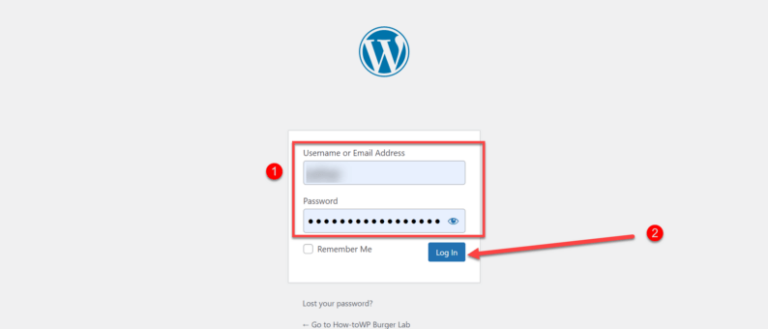
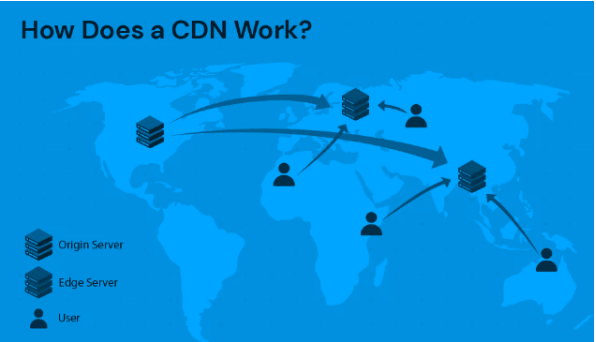
![How to Remove Tagline in WordPress [A Step-by-Step Guide]](https://codingheros.com/wp-content/uploads/2024/12/how-to-remove-tagline-in-wordpress-a-step-by-step-guide-768x142.png)

